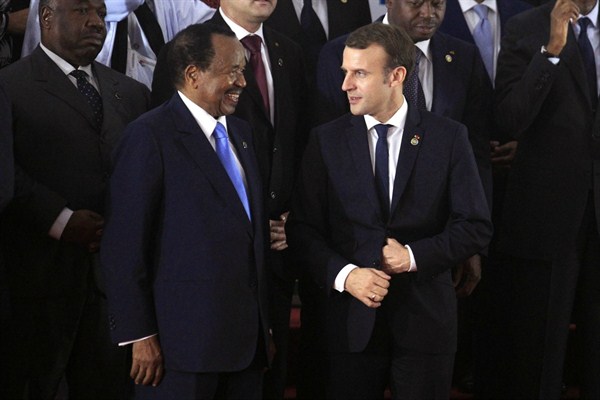Michel Thierry Atangana Abega spent 17 years in detention in Cameroon, locked in a tiny underground cell. He was alone for nearly all that time, denied access to lawyers and doctors and dependent on charity to supplement meager, state-issued rations. His primary connection to the outside world came from a radio that carried local stations and, sometimes, Radio France Internationale and the BBC.
Born in Cameroon in 1964, Atangana studied in France and became a naturalized French citizen in 1988. He embarked on a career as a financial engineer and, in 1994, traveled back to Cameroon to develop road projects. It was in that capacity, he says, that he got to know Titus Edzoa, who was then a high-ranking official in the president’s office in Yaounde.
In April 1997, Edzoa surprised Cameroon’s political class by resigning his post and announcing he would run in that year’s election against President Paul Biya, who has stifled most forms of political opposition since taking power in 1982. The next month, Atangana was questioned about his alleged links to and support of Edzoa, then detained for 52 days before finally being presented before a judge. Both Atangana and Edzoa were eventually convicted of embezzlement, among other crimes, and imprisoned until February 2014, when Cameroonian authorities caved to mounting international pressure and granted the men’s release. Atangana denies the charges against him, and activists who’ve followed his case say no evidence was ever provided to support them.

